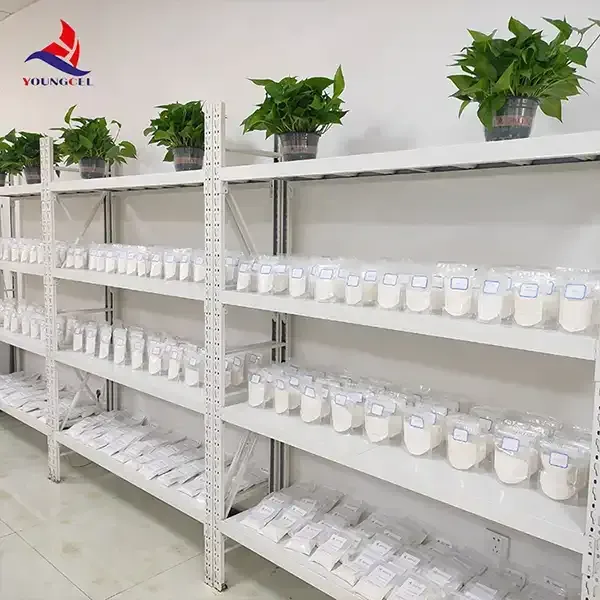The Role of Cellulose Coating in Modern Applications
Cellulose, a biopolymer derived from plant cell walls, plays a significant role in various industries, particularly in coating applications. As environmental concerns rise and the demand for sustainable materials increases, cellulose coatings have emerged as a viable alternative to synthetic coatings. This article explores the properties, benefits, and diverse applications of cellulose coatings, highlighting their significance in contemporary markets.
Understanding Cellulose Coating
Cellulose coatings are derived from cellulose fibers, which are abundant in nature and renewable. These coatings can be produced in several forms, including films, gels, and dispersions. The primary sources of cellulose are wood pulp and cotton, which undergo a series of processing steps to enhance their functional properties for coating applications.
One of the standout features of cellulose coatings is their biodegradability. Unlike traditional petroleum-based coatings that can take decades to decompose, cellulose coatings break down naturally in the environment, reducing pollution and contributing to a circular economy. As a result, companies are increasingly opting for cellulose-based solutions, aligning with global sustainability goals.
Properties of Cellulose Coatings
Cellulose coatings exhibit several key properties that make them attractive for various applications
1. Barrier Properties Cellulose coatings offer excellent barrier capabilities against gases, moisture, and oils. This characteristic is crucial in food packaging and preservation, where maintaining product freshness is essential.
2. Biocompatibility Due to their natural composition, cellulose coatings are non-toxic and biocompatible, making them suitable for applications in the medical field, such as drug delivery systems and wound dressings.
3. Transparency and Aesthetic Appeal Cellulose coatings can be formulated to be clear and glossy, providing an aesthetically pleasing finish for various products, from cosmetics to consumer electronics.
4. Thermal Stability These coatings demonstrate good thermal stability, which is vital for applications that involve exposure to heat, ensuring durability and longevity.
cellulose coating

5. Customizability Cellulose coatings can be tailored to meet specific requirements through modifications in their chemical composition or by blending them with other polymers, enhancing their properties for targeted applications.
Applications of Cellulose Coatings
The versatility of cellulose coatings allows for their use in a wide range of industries
1. Food Packaging In the food industry, cellulose coatings are increasingly used as protective barriers that extend shelf life and maintain the quality of food products. Their biodegradable nature also appeals to environmentally conscious consumers.
2. Pharmaceuticals The pharmaceutical industry benefits from cellulose coatings in drug formulations. They can be used as coatings for tablets to control the release of active ingredients, improving therapeutic efficacy and patient compliance.
3. Cosmetics In cosmetic formulations, cellulose coatings provide a smooth texture and enhance the stability of products. They are often used in creams, lotions, and makeup items, providing a desirable finish without compromising skin health.
4. Wood Coatings In the construction and furniture industries, cellulose-based coatings provide protection to wooden surfaces while allowing for better breathability and moisture management compared to synthetic options.
5. Textiles Cellulose coatings are also applied to textiles to impart water-resistant properties, enhance durability, and improve aesthetics without harsh chemicals.
Conclusion
In conclusion, cellulose coatings represent a promising development in the quest for sustainable materials in numerous industries. Their inherent properties, such as biodegradability, barrier effectiveness, and biocompatibility, make them suitable for a wide range of applications from food packaging to pharmaceuticals and beyond. As innovation in cellulose technology continues to progress, we can expect to see increased adoption and new applications that further capitalize on the advantages of this remarkable biopolymer. Embracing cellulose coatings not only supports the shift towards greener alternatives but also fosters a more sustainable future for various industries around the globe.
-
Rdp Powder: Key Considerations for Wholesalers in the Building Materials IndustryNewsJul.08,2025
-
Key Considerations for Wholesalers: Navigating the World of Hpmc - Based ProductsNewsJul.08,2025
-
Hpmc Detergent: Key Considerations for WholesalersNewsJul.08,2025
-
Key Considerations for Wholesalers: China Hpmc For Tile Adhesive, Coating Additives, Concrete Additives, and MoreNewsJul.08,2025
-
Crucial Considerations for Wholesalers: Navigating the World of Construction MaterialsNewsJul.08,2025
-
Key Considerations for Wholesalers Sourcing Additive For Cement, Additive For Concrete, Additive For Putty from Additive Manufacturer Shijiazhuang Gaocheng District Yongfeng Cellulose Co., Ltd.NewsJul.08,2025




